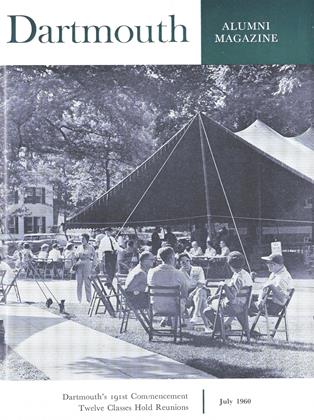THE National Science Foundation has awarded two members of the College's Botany Department a $32,300 grant to establish a national center for supplying fungi widely used in teaching and research.
At the same time, the Foundation also awarded a smaller grant of 15,929 to John W. Dewdney, assistant professor of physics, to develop an inexpensive mass spectrometer especially adapted for teaching principles of nuclear physics.
The larger grant has been awarded to Prof. Raymond W. Barratt and William Ogata, a research assistant in the Botany Department. Between 1,000 and 2,000 genetic strains of Neurospora and Aspergillus, fungi useful in teaching and research in genetics, biochemistry, and biological analysis, will be collected. Scientists and teachers will be able to order stocks free of charge from lists published by the center.
The fungi will be frozen, dried and stored in small, vacuum-sealed glass tubes. Professor Barratt and Mr. Ogata will also work on development of strains with known genetic backgrounds and analyze certain mutant or new strains produced by radiation and certain chemicals.
Professor Dewdney, in developing a spectrometer, plans to work with parts and materials largely available in a hardware store. Such a low cost mass spectrometer would be within reach of many schools with limited budgets.
The mass spectrometer provides information essential to an understanding of modern physics. It separates electrically charged atoms according to their mass. A commercial mass spectrometer costs thousands of dollars and is more elaborate than necessary for classroom use. Professor Dewdney has already developed a teaching model which can be reproduced for about $1,000.
 View Full Issue
View Full Issue
More From This Issue
-
 Feature
FeatureThe Disinterested Citizen and the Maintenance of Freedom
July 1960 By WHITNEY NORTH SEYMOUR, LL.D. '60 -
 Feature
FeatureThe Fifty-Year Address
July 1960 By ANDREW J. SCARLETT '10 -
 Feature
FeatureHONORARY DEGREE CITATIONS
July 1960 -
 Feature
Feature1960 Commencement
July 1960 By D.E.O. -
 Feature
FeatureThe Image of the Educated Man
July 1960 By HARRISON CASE DUNNING '60 -
 Feature
FeatureThe Reunion Week
July 1960







